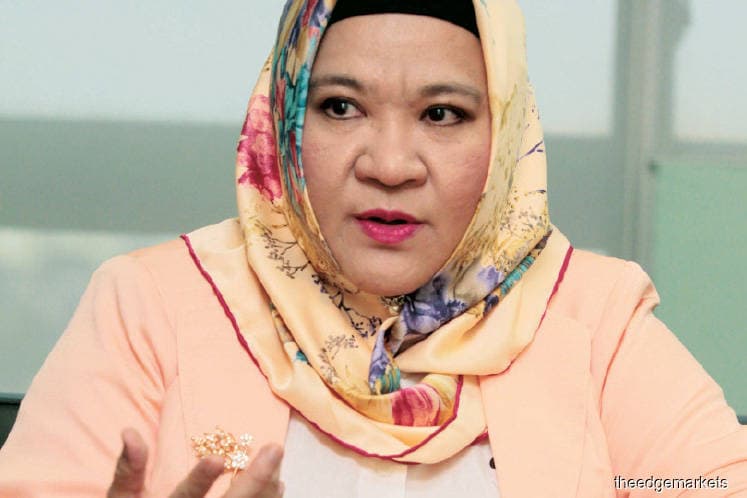
This article first appeared in The Edge Malaysia Weekly on December 17, 2018 - December 23, 2018
COMPLYING with the Malaysian Financial Reporting Standard (MFRS) 9 has proved to be more challenging than the 2008 US subprime mortgage crisis and the 2015 oil price crisis, according to Etiqa Insurance and Takaful chief investment officer Norlia Mat Yusof.
And there will be no let-up in the coming year, following the adoption of the new accounting standard by Maybank group of companies in January this year.
“This year, if not for the change to MFRS 9 from the previous MFRS 139, the challenge would not be as tough. The impact of MFRS 9 on the group’s P&L [profit and loss] statements was immediate. And this challenge continues. For as long as the value of our assets or funds is mark-to-market on a daily basis, our earnings will always be volatile. Nonetheless, Etiqa is confident that we can continue to manage these challenges,” Norlia says in an interview with The Edge.
She regards this year as the second most challenging period after the 1997/98 Asian financial crisis.
The equity market volatility is not helping matters, with the FBM KLCI down 6% year to date.
She says the US trade war with China and the uncertainty over government policies, following the change in government after the 14th general election on May 9, had affected the stock market.
“When we saw a change of government for the first time [since independence], it was a new learning. There was uncertainty about new policies, which we believe will gradually settle down over time,” she says.
Fortunately for Etiqa, says Norlia, the group’s equity exposure is “not so much” as the fixed-income markets.
Going into next year, she believes that for as long as the US-China trade war is not settled, the market will continue to be volatile.
“The Malaysian market is affected by what is happening in the world, including the trade war and a hike in US interest rates. Until we see the US-China dispute settled, we will continue to see volatility,” she says.
Norlia is also concerned about the movement of global crude oil prices.
“If the oil price remains at US$70 per barrel, we are okay because our national budget was based on the assumption that oil prices would be US$70 per barrel. But if the oil price continues to head south to below US$60 per barrel, we may have to relook at our numbers again,” she says.
Nevertheless, Norlia says investors take comfort in the fact that the government is implementing measures to tackle corruption and improve transparency.
“Even the policy on our fiscal deficit, I appreciate the amount even though it looks big at 3.7% when the market was expecting it to go down. What matters to me most is that the government is being very transparent on this and knows how to move forward to bring down the fiscal deficit,” she says.
Last month, Finance Minister Lim Guan Eng announced that the government is looking to cut its fiscal deficit from 3.7% in 2018 to 3.4% in 2019, 3% by 2020, and 2.8% in 2021.
“We also don’t think the foreign rating agencies will downgrade Malaysia’s sovereign rating because the government has been clear about how it is going to cover the shortfall.
“For example, it is expecting higher dividends from Petroliam Nasional Bhd and it knows how to reduce the deficit year by year. Why should rating agencies penalise us when we are being very transparent about our current economic situation? Even if they do, they will probably put us on negative watch. But even that is unlikely,” she says.
Among stocks, Norlia likes those in the banking and consumer sectors.
She projects stable dividend yields for the bond market next year as the US is not expected to continue to raise interest rates after the second half.
“We expect the US to raise rates in December, but Malaysia Government Securities are likely to remain stable as the market has factored in the increase to a certain extent.
“As for corporate bonds, the local market has absorbed them pretty well. There is always new money entering the system with government-linked investment companies like the Employees Provident Fund, Permodalan Nasional Bhd and Kumpulan Wang Persaraan (Diperbadankan) absorbing these bonds. That is why the yields remain stable.”
On the local economy, Etiqa expects it to expand by 4.8% this year and 4.8% to 4.9% in 2019.
Save by subscribing to us for your print and/or digital copy.
P/S: The Edge is also available on Apple's AppStore and Androids' Google Play.